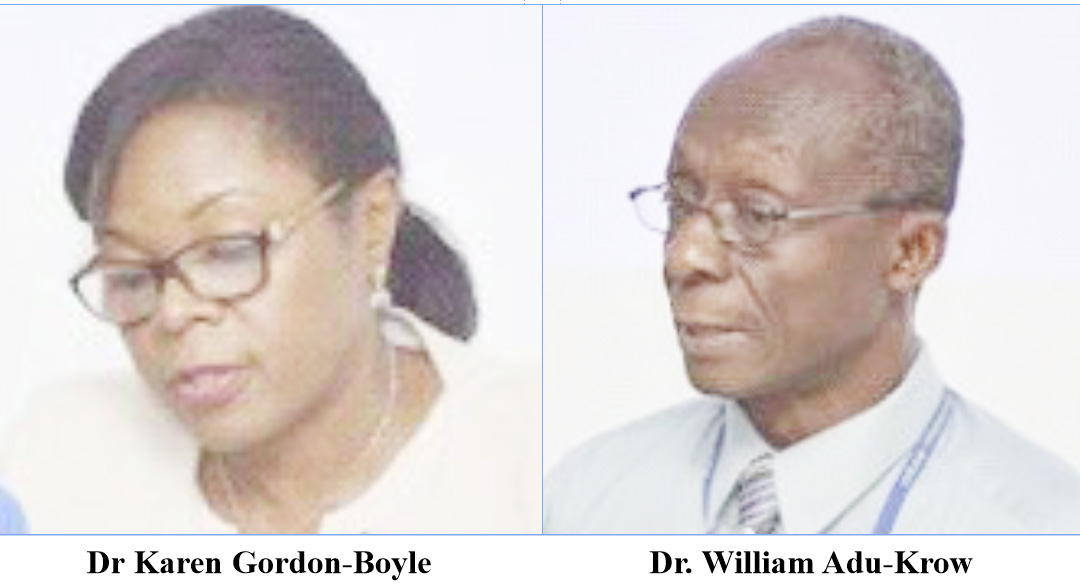The risk of contracting the novel coronavirus disease (COVID-19) from an asymptomatic host is relatively low, Pan American Health Organization/World Health Organization (PAHO/ WHO) country representative Dr William Adu-Krow said on Monday.
“WHO has established that the few that do not have symptoms are not the main transmission source. The main transmission source are those people who have the disease,” Adu-Krow said.
According to the WHO, an asymptomatic laboratory-confirmed case is a person infected with COVID-19 who does not develop symptoms.
During a telephone interview with Stabroek News, Adu-Krow explained that a change in the testing policy for COVID-19 will not prevent the spread since asymptomatic cases are often times undetected.
Adu-Krow reiterated that testing is done in keeping with international guidelines and before one is subject to a test, he said they must fit the required criteria.
“We have guidelines for testing and those guidelines, once you meet those guidelines, you are tested… Even at the rate at which we are testing, only 25% come out positive. Only 25%. So it’s not a question of you being monitored, it’s a question of fitting the criteria for testing,” he said.
“….I don’t know where people are getting this idea of 80% are asymptomatic, that is false,” Adu-Krow added.
The international guidelines, according to Adu-Krow, are what determine who can be tested for COVID-19. “Personally I know if we can know everybody status it’s safe but in the circumstances…..we have international guidelines that guide who gets tested. Not that Guyana has changed those guidelines, that’s what they are using,” he said.
Adu-Krow explained that many desire to be tested based on their curiosity. “Believing that you have COVID, whether it’s true or false, the treatment is the same…it relaxes your mind, okay I have it or I don’t have it but the management of the signs or symptoms, whether it’s the flu or its COVID, it’s the same. So I think people just want to know their status except that is not enough for the whole world and that’s why globally it’s been determined that you must fit three categories. If you fit A and B, you go and test immediately. If you fit C, we do the flu test first and if it’s negative then we do the COVID… so it’s good that you have the testing done but it only satisfies people’s curiosity,” he explained.
Meanwhile, Deputy Chief Medical Officer Dr. Karen Gordon-Boyle said that there has been no test so far which diagnoses coronavirus infection before one becomes symptomatic. “…So if you have coronavirus and you are asymptomatic and you do a test, it will be negative. So, the point of doing a test and getting a negative will only give you a false sense of security because you can still have the virus but it is not there in numbers so the test can pick it up,” Gordon-Boyle explained.
According to Gordon-Boyle, the test that is currently being used can only detect if an individual has coronavirus one week after developing symptoms. “If you go do that test too early, it will tell you that you are negative and you can still end up having it,” she said.
She further related that the other tests which include the rapid tests are not being done anymore since they are less consistent than the polymerase chain reaction (PCR) test.
“And so there is a problem there….I have no problem in making rapid testing available to the private sector. I would love the public to be able to have greater access to testing but the quality cannot be compromised. The quality has to remain at a high enough level that when you get the results and it says you are positive then you know you are positive, [and] if it says you are negative then you know you are negative. It can’t be that you don’t know for sure—‘Oh you tested negative but then [are] still positive and you go about mixing and mingling with everybody thinking you are negative—it’s too dangerous of a disease and too easily transmitted,” Gordon-Boyle explained.
Presently, Guyana has a total of 1,800 COVID-19 testing kits, which were donated by the PAHO/WHO.
Gordon-Boyle on Monday said that at present Guyana has enough testing kits and continuous purchasing will be done in batches. “….So that we don’t have too much at any one point in time for it to spoil….so we are procuring all the time, we haven’t run out,” she noted.






